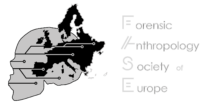Hosts
The advanced workshop about bone histomorphology is organised by the BABEL Research Unit and the Paris-City University
Please see the presentations below for more information:
The BABEL research unit (Biology, Anthropology, Biometry, Epigenetic, Lineage) is a multidisciplinary team affiliated with the French National Center for Scientific Research (CNRS) and the University of Paris. This unit specializes in forensic anthropology and focuses on the critical issue of individual identification, particularly in the context of mass fatality events, terrorist attacks, and migration-related deaths.
Key Features
- Interdisciplinary Approach: BABEL combines expertise from biological sciences, medical sciences, and social sciences to address complex identification challenges.
- Collaboration: The unit works closely with the Institute of Legal Medicine (IML) of Paris, handling approximately 3,000 corpses annually, of which 400 are unidentified.
- Research Focus: BABEL’s research encompasses:
- Molecular anthropology
- Biological profiling
- Ethno-psychological approaches to identification
- Study of ancient and modern human populations
Objectives
- Develop innovative methods for rapid and efficient identification of deceased individuals.
- Enhance understanding of human biological variability to improve identification criteria.
- Address societal concerns related to migration, terrorism, and mass disasters through the study of biological and cultural identity.
Facilities and Expertise
BABEL benefits from state-of-the-art technical platforms for identification purposes and leverages the expertise of researchers from various disciplines, including anthropology, genetics, psychology, and medicine.
This research unit plays a crucial role in advancing forensic anthropology techniques and addressing the growing need for efficient and accurate identification methods in an increasingly complex global context.
Université Paris Cité: A Hub of Excellence in Education and Research
Located in the heart of Paris, Université Paris Cité is a prestigious public research university renowned for its multidisciplinary approach and innovative programs. Established in 2019 through the merger of Paris Descartes and Paris Diderot universities, it is a leading institution in France and Europe, recognized for its excellence in clinical medicine, public health, and mathematics.
Academic Structure
The university is structured into three main faculties: the Faculty of Health, the Faculty of Sciences, and the Faculty of Humanities and Social Sciences. This structure allows for a diverse range of academic programs, including over 100 research and professional master’s programs and 21 doctoral programs.
International Programs and Research
Université Paris Cité offers numerous international joint degrees and programs taught in English, catering to a diverse student body. It is a founding member of the Circle U. European University Alliance and collaborates with several international academic partners. The university’s research environment is highly regarded, with a strong focus on addressing global challenges.
Campus and Facilities
The university spans multiple campuses across Paris, including the historic Latin Quarter and the Grands Moulins campus. Its facilities include state-of-the-art research laboratories and teaching hospitals, providing students with comprehensive learning opportunities.
Student Support
Université Paris Cité provides extensive support for international students, including assistance with administrative formalities, housing, and financial aid. The university’s commitment to fostering a welcoming environment ensures that students from around the world can thrive in Paris.
